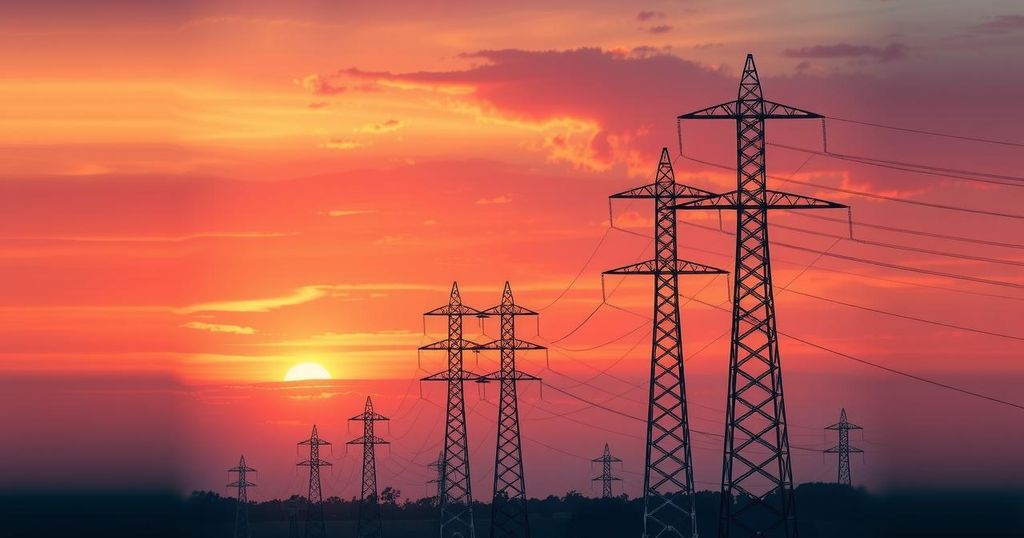The US has ended the waiver allowing Iraq to import electricity from Iran, a decision aiming to restrict Iran’s economic relief. Iraq, currently dependent on Iranian gas to meet its energy needs, has a plan for energy independence by 2028, which involves regional energy projects.
The United States government has officially terminated Iraq’s waiver allowing it to import electricity from Iran, according to a spokesperson from the State Department. This action underscores Washington’s ongoing strategy of maximum pressure against Tehran, ensuring that Iran does not receive economic relief. The spokesperson emphasized that this decision is part of broader efforts to address Iran’s nuclear activities and support for terrorism.
Currently, Iraq generates approximately 27,000 megawatts of electricity, though production can fall to 17,000 megawatts during peak demand periods, resulting in significant shortages. The nation requires about 40,000 megawatts to adequately meet daily needs, which has led to dependence on Iranian gas imports, previously safeguarded by US sanctions waivers.
With the recent changes in the US administration, Iraqi Prime Minister Mohammed Shia al-Sudani requested an extension for the waiver to continue Iranian energy imports. However, he articulated a vision for Iraq’s energy independence by 2028, emphasizing the importance of maintaining the waiver during this transitional phase. He also mentioned ongoing energy interconnection projects with neighboring countries.
This new stance from the US coincides with discussions between US Secretary of State Marco Rubio and PM Al-Sudani regarding Iran’s regional influence. Rubio urged Iraq to pursue full energy independence, reinforcing the US policy’s commitment to countering Iran’s involvement in the region.
In summary, the US has revoked Iraq’s waiver for Iranian electricity imports as part of its maximum pressure campaign against Iran. This decision highlights Iraq’s ongoing energy dependency while the Iraqi government plans to achieve energy independence by 2028. Prime Minister Al-Sudani’s efforts to reduce reliance on Iranian energy are critical amid the shifting US foreign policy landscape.
Original Source: shafaq.com






